The Healing Herbs of Greece
One Week, Seven Magical Days
Welcome to our week-long workshop on the fascinating intersection of epigenetics and the Greek diet. Epigenetics refers to the study of how environmental factors, such as diet and lifestyle choices, can influence the expression of our genes and potentially impact our health and well-being. In this workshop, we will delve into the connection between the Greek diet and epigenetic processes, exploring how traditional Mediterranean eating habits can positively influence our genetic expression.
To begin, let’s gain a clear understanding of epigenetics. Our DNA contains genes that serve as the blueprint for our bodies, but genes need instructions for their activation. Epigenetic tags, made of chemicals, attach to our DNA, forming a layer that switches genes on or off, allowing them to be expressed or repressed. Developmental cues and intergenerational inheritance of epigenetic tags can influence gene expression, adapting subsequent generations to the conditions their ancestors experienced.
Research has shown that trauma can be intergenerationally transmitted through epigenetic mechanisms, specifically through methylation patterns in human sperm. Childhood trauma, for example, can leave chemical marks on a person’s genes, which can be passed down to future generations, altering the mechanism of gene expression. This alteration is epigenetic, not genetic.
The exciting news is that epigenetic features associated with aging can be reversed. Studies using reprogrammed induced pluripotent stem cells (iPSCs) have shown the restoration of youthful chromatin states associated with aging. This suggests that positive lifestyle changes can alter thousands of gene activities, ultimately influencing our well-being and health outcomes.
Epigenetics challenges the notion that our genes solely determine our health. Only 5% of disease-related gene mutations are entirely deterministic, while 95% are susceptible to changes in diet, behavior, and environmental factors. Our genes do not define us entirely; we have the power to shape our biological destiny by making deliberate lifestyle choices and modifying our external and internal environments. By understanding and harnessing the potential of epigenetics, we become the directors and users of our genes, capable of positively impacting our own well-being.
In this workshop, we will explore the relationship between epigenetics and the Greek diet. The Mediterranean diet, with its emphasis on fresh fruits and vegetables, whole grains, legumes, and olive oil, has long been recognized as a model of healthy eating. Numerous studies have highlighted the beneficial effects of the Greek diet on cardiovascular health, longevity, and overall well-being. Now, we will delve deeper into how the Greek diet influences our epigenetic processes and gene expression, potentially offering even greater health benefits than previously understood.
Throughout the workshop, we will address key questions and topics, such as how specific nutrients in the Greek diet can modify epigenetic patterns, the impact of diet on DNA methylation and aging, the role of stress and lifestyle factors in epigenetic changes, and the potential for nutrigenomics to personalize dietary recommendations based on individual genetic profiles.
Join us on this exciting journey to unlock the potential of the Greek diet and epigenetics. Together, we will explore the transformative power of food and lifestyle choices in shaping our genetic expression and promoting optimal health and vitality.
Program:
- Preliminary blood work: we test your genetic panel, and you will send us your blood work two months before the workshop so we can test your blood.
- You will have a blood test prior to your arrival to test your lipid profile, liver and kidney function, and blood counts.
When we meet in Chios, you will have a personal meeting with one of the guides, who will go over your results with you and explain their meaning.
During the week, you will have a personal meeting with your guide, who will check you for traditional diagnosis in Greek – Arab medicine and recommend the right herbs for you with specific instructions.
